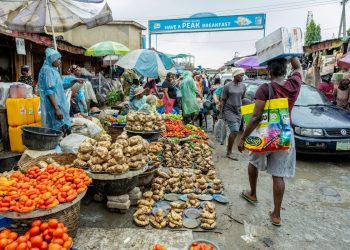The federal government, through the Federal Ministry of Agriculture and Rural Development (FMARD), issued certificates of registration and sales permits to qualified fertilizer dealers on Thursday. The move is to consolidate the National Fertilizer Quality Control (NFQC) Act and address the blending of adulterated fertilizers in the country.
This is according to a media published by the Federal Ministry of Agriculture and Rural development, available on the ministry’s official website.
According to Dr. Ernest Umakhihe, the Permanent Secretary, FMARD, the Act required that upon the fulfillment of all necessary conditions, fertilizer suppliers, producers, blenders, and importers will be issued the Certificate of Registration while Agro-dealers (distributors) that fulfill the same will be issued with the sales permit.
Non-licensed operators will not be allowed to produce, blend, import, market, or distribute fertilizers in the country. Also, suppliers have been directed to sell their products to only agro-dealers who have obtained sales permits, likewise to abide strictly and operate within the provisions of the NFQC Act and the implementing regulations.
In ensuring compliance with the provisions of the Act and Regulations, the Permanent Secretary revealed that the Ministry has deployed trained Fertilizer and Agricultural Pesticides Quality Control Inspectors to the 36 States and FCT, who are currently working with relevant security agencies to protect the farmers and the industries.
However, the Permanent Secretary revealed that a 2-month grace period has been granted to operators who have not obtained their certificates. Subsequently, the ministry will begin to seal the facilities of non-compliant dealers.
The Director of Farm Inputs Support Services Department, Mr. Kwaido Sanni, emphasized that the Act and Regulations were not in place to impose operational bottlenecks on the dealers’ business but to protect the genuine entrepreneurs, the farmers, the environment and the entire citizenry from both economic and human losses.
Dr. Ernest Umakhihe highlighted the ministry’s efforts in addressing the challenges to enhancing food production and security, especially those affecting the fertilizer industry.
He said, “efforts were being made to source basic raw materials that were not available in the country. Like, Urea and Limestone (NPKs) which are obtained locally while Diammonia Phosphate (DAP) and Muriate of Potash (MOP) are sourced from Morocco and Belarus.”
“The resultant scarcity he noted, gave rise to the high cost of the raw materials and the price of the corresponding finished products-NPKs but to tackle the issue head-on, the Ministry is working with the relevant agencies to source the two important raw materials locally through the Solid Mineral Development Fund to guide against future scarcity.”
What you should know
- President Mohamadu Buhari signed into law the National Fertilizer Quality Control Act in 2019, in a bid to safeguard Nigeria’s agricultural sector and to and protect the interest of the entire Fertilizer value chain.
- The implementation regulations were signed by the Honorable Minister of Agriculture and Rural Development in March 2020 to curtail the effect of contaminated foods.
- Agriculture being the mainstay of Nigeria’s economy requires such act to reposition the country’s economy from oil and gas to agribusiness.











